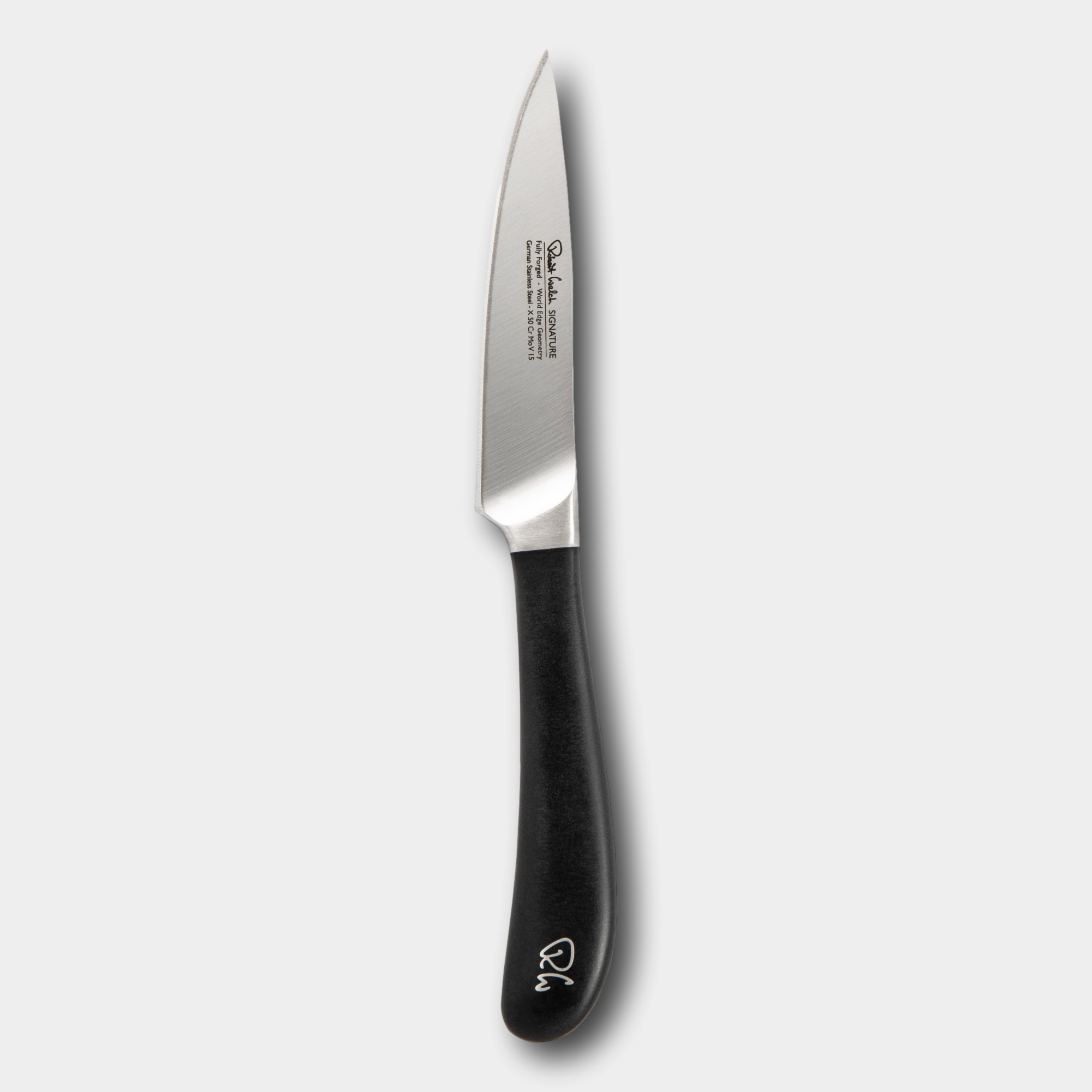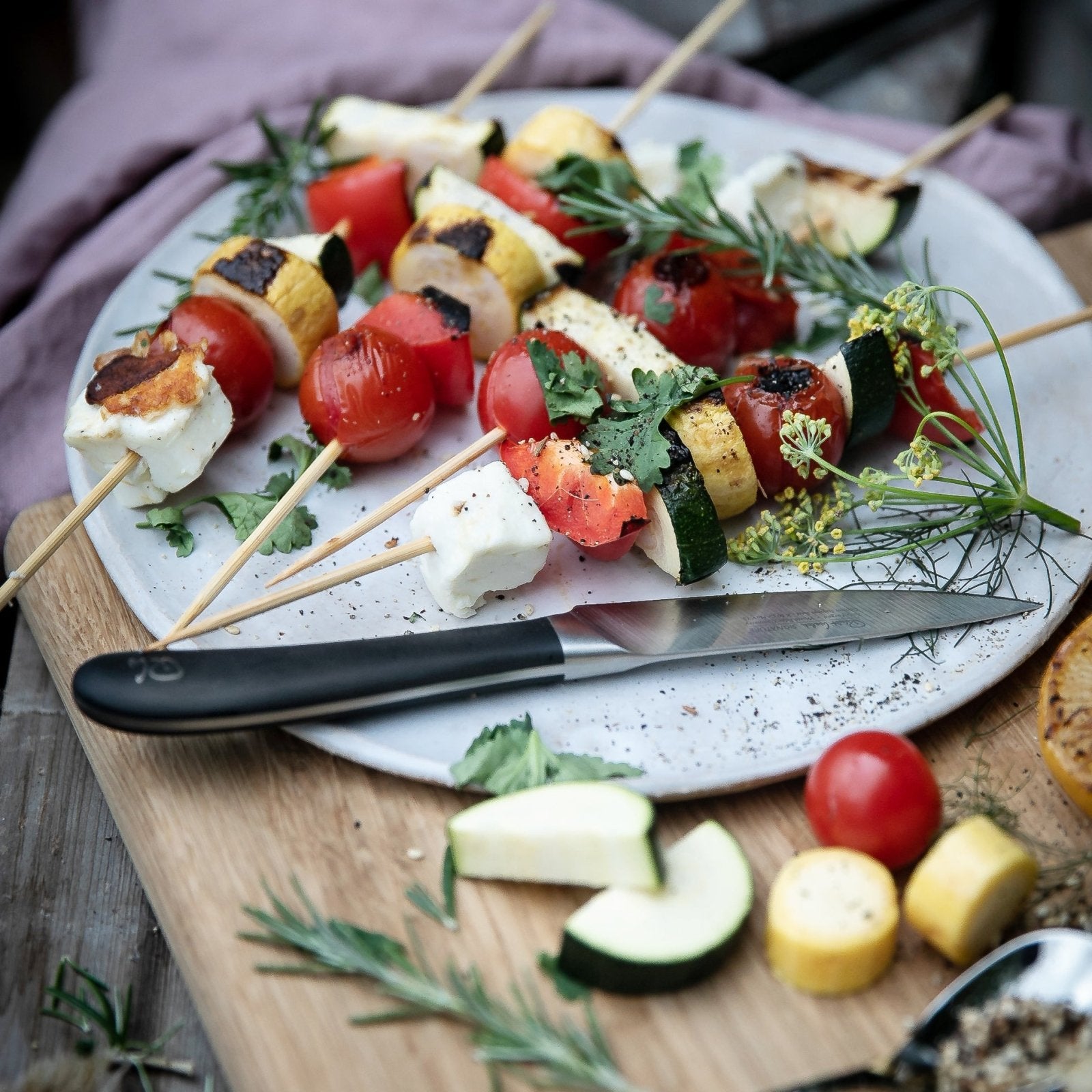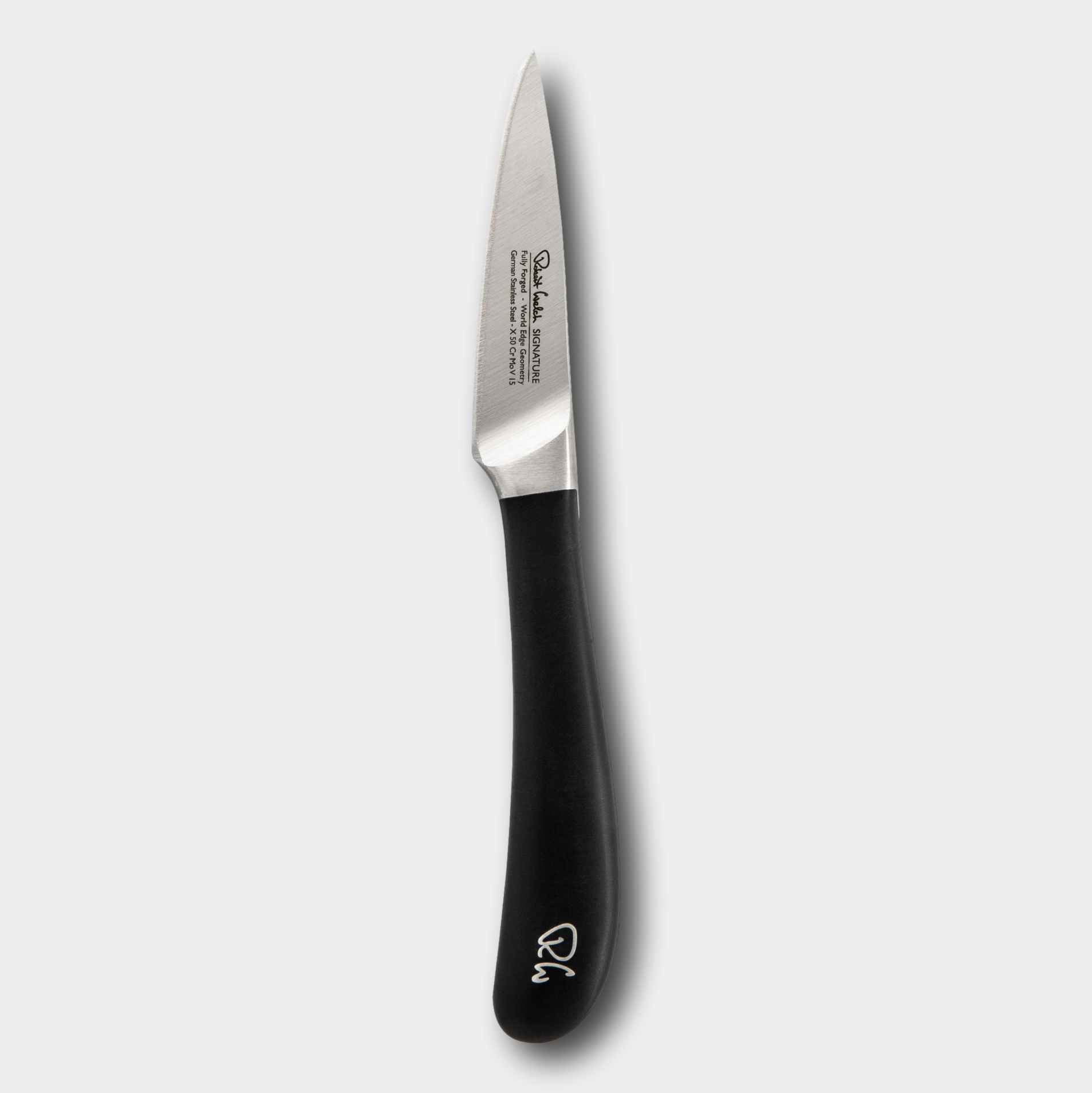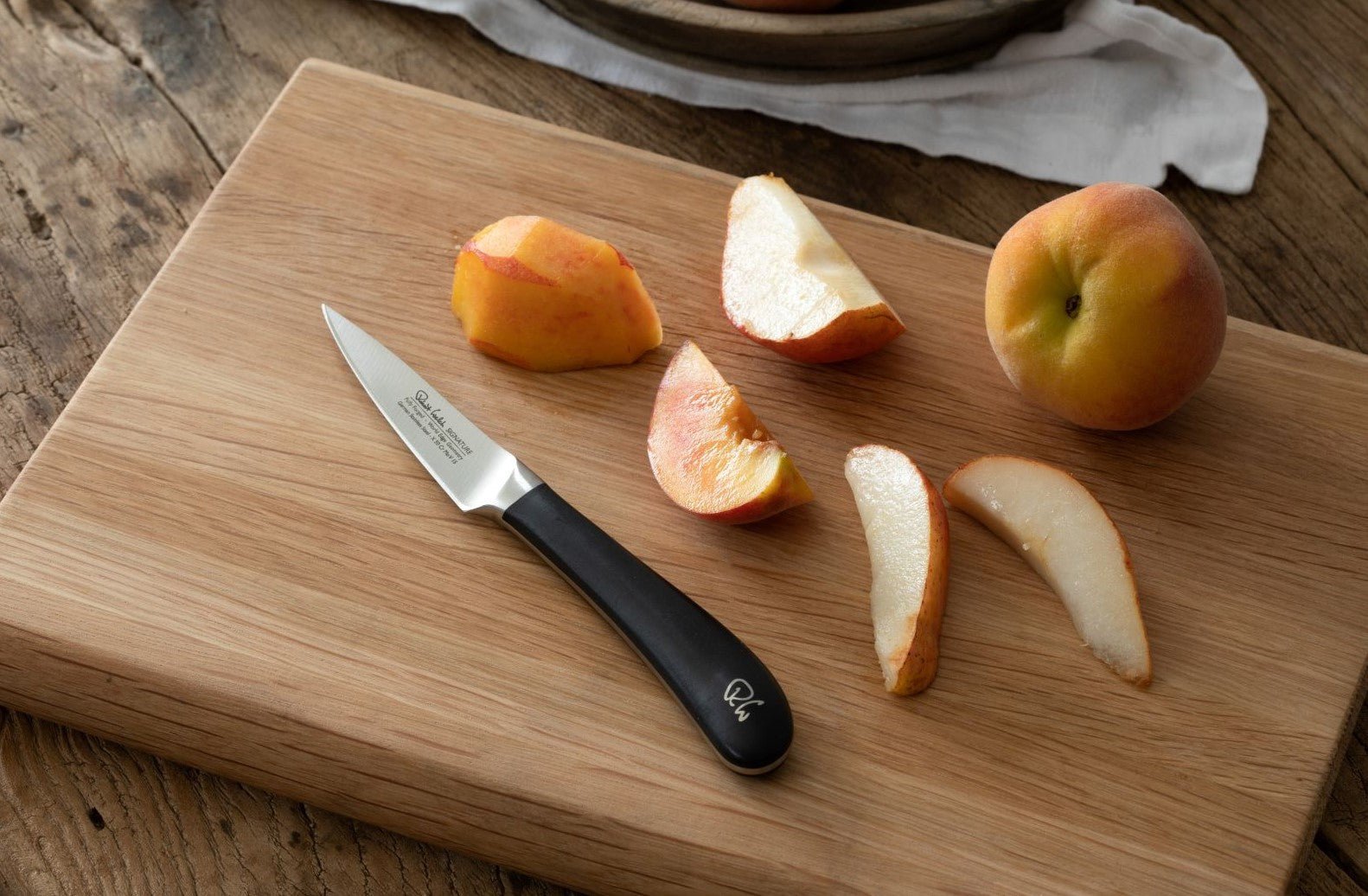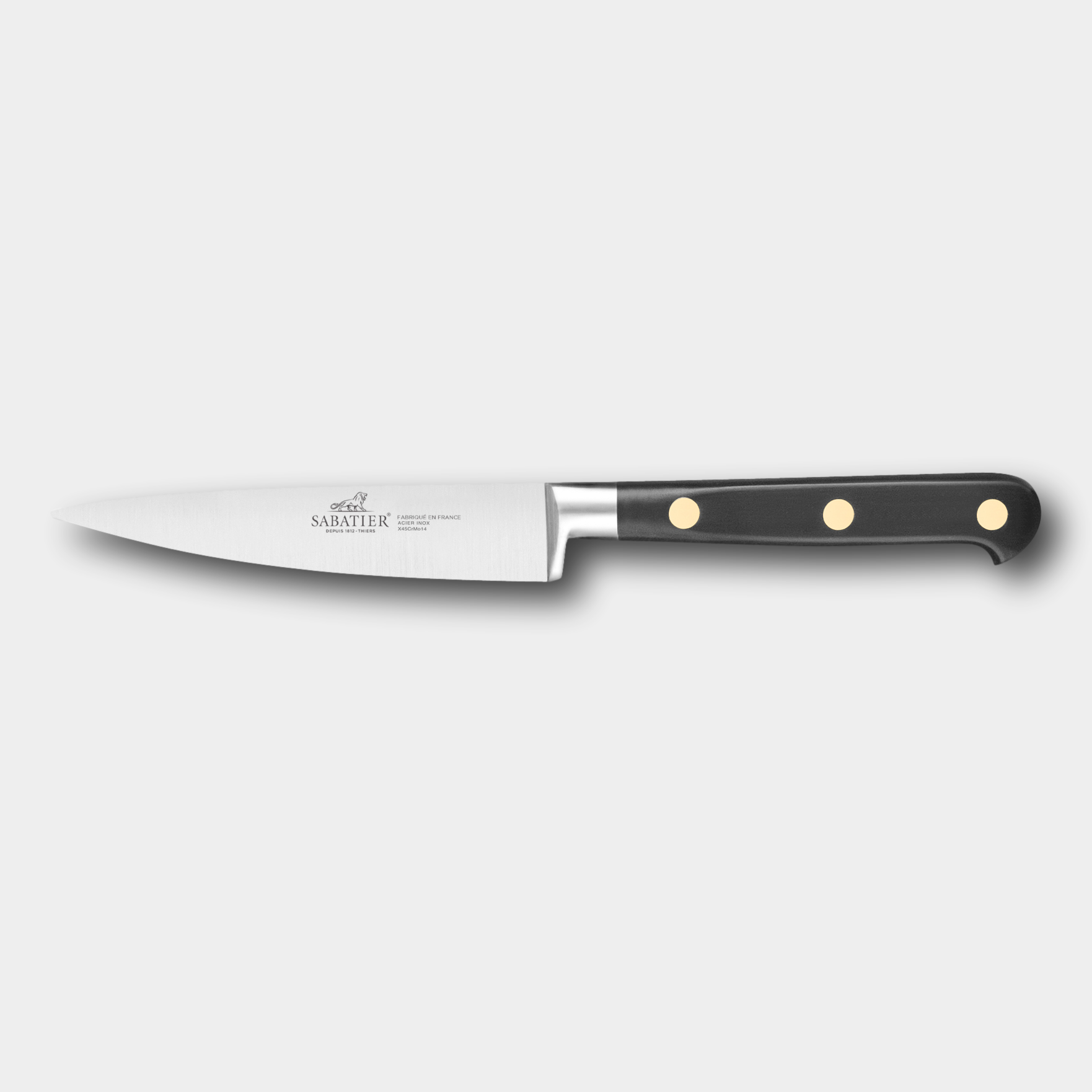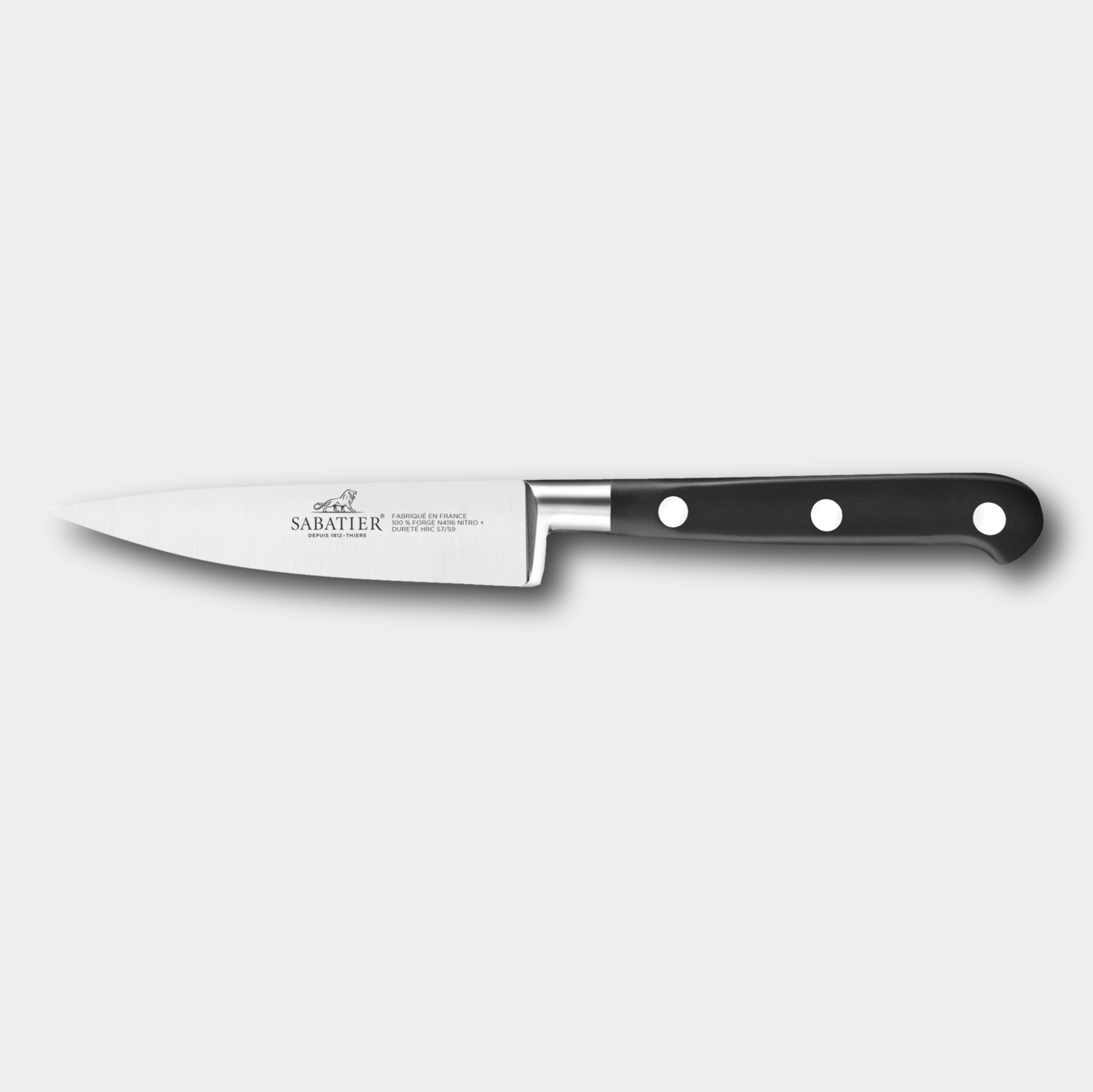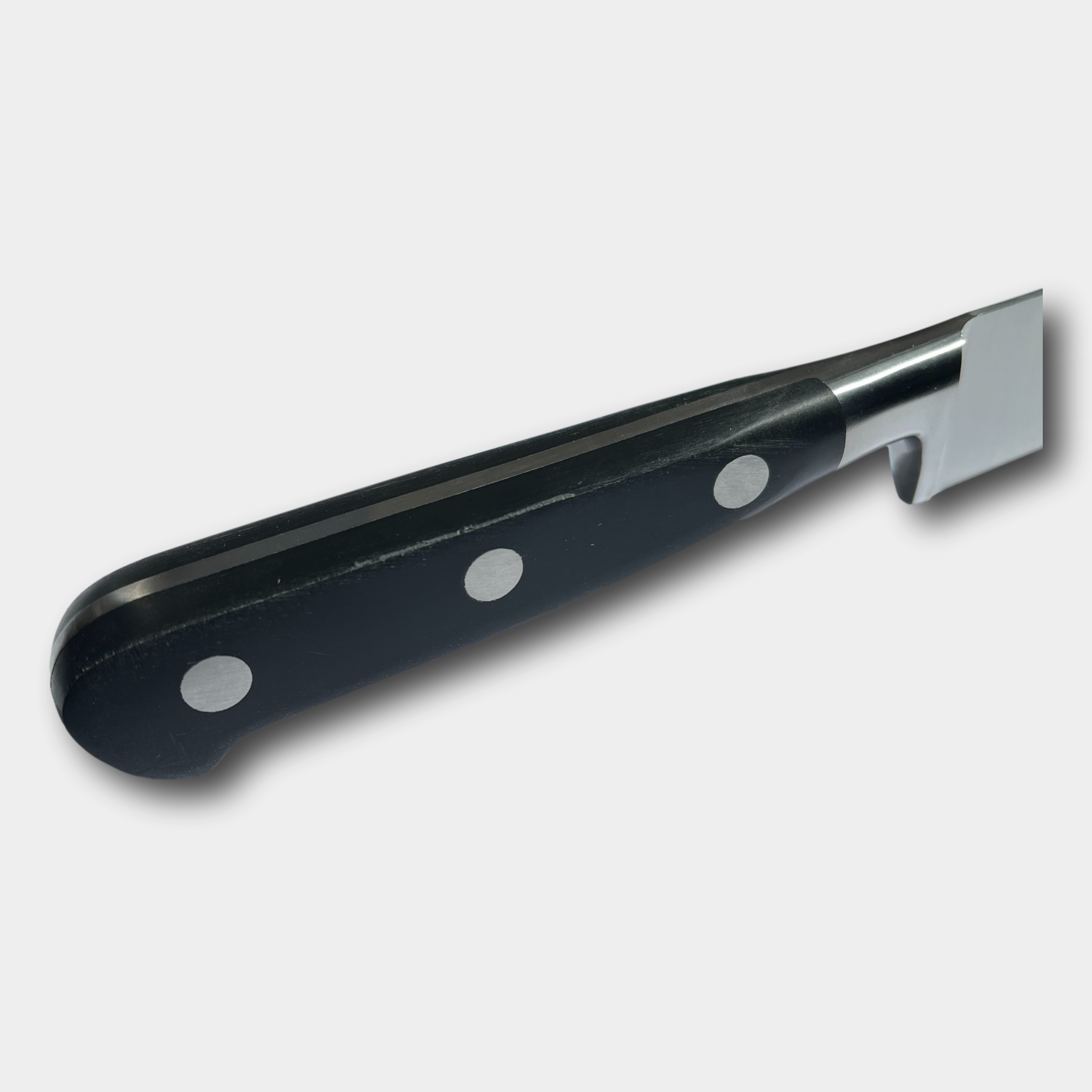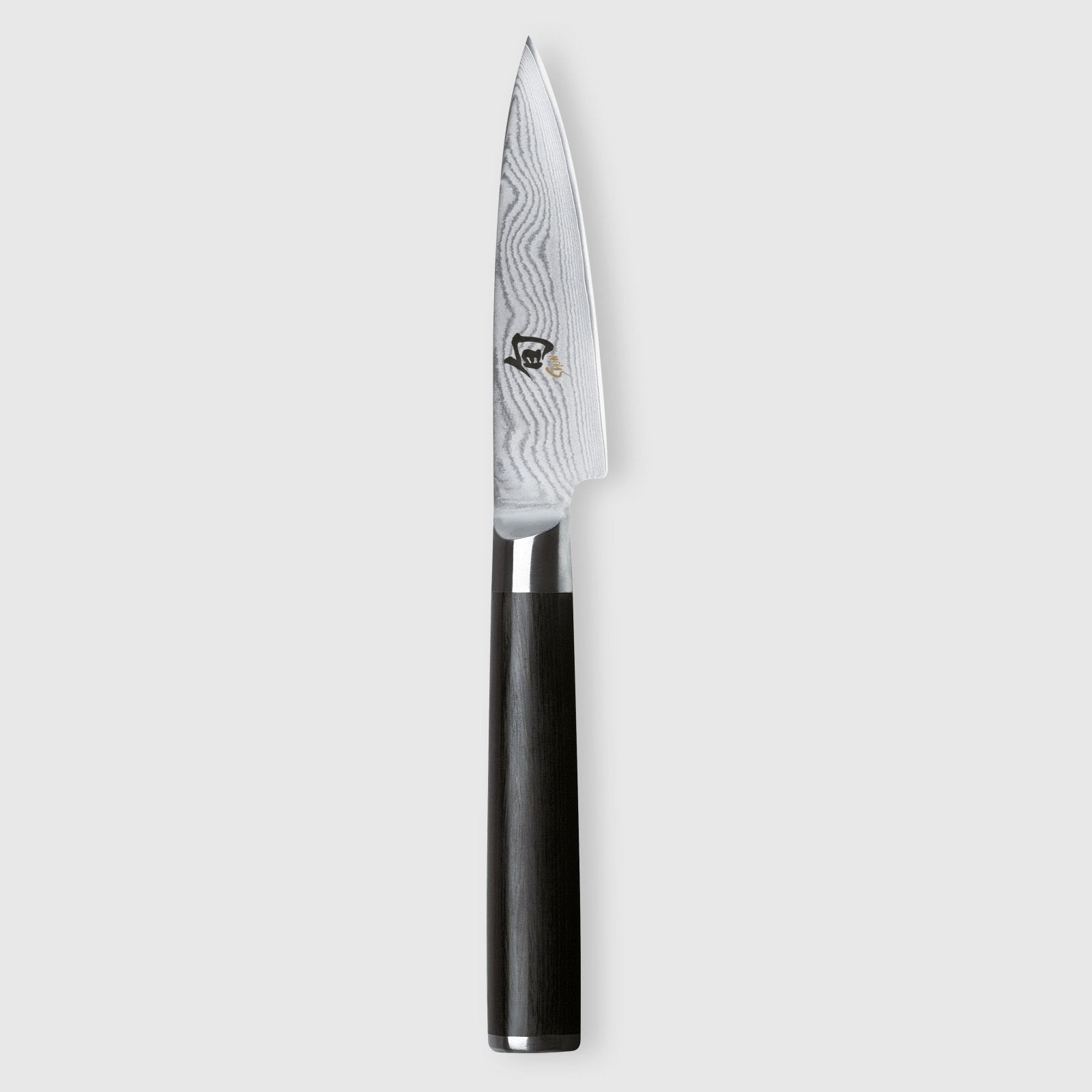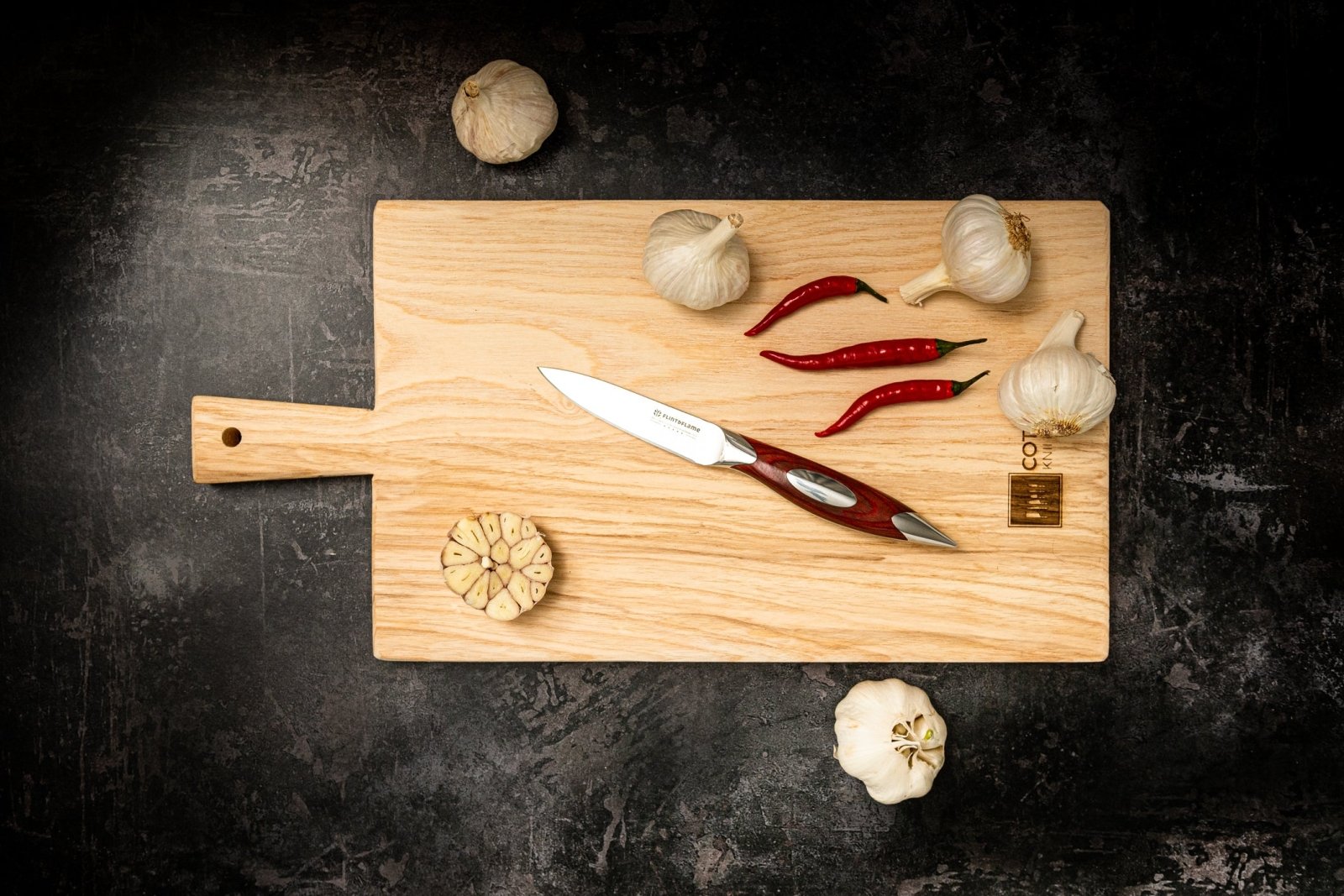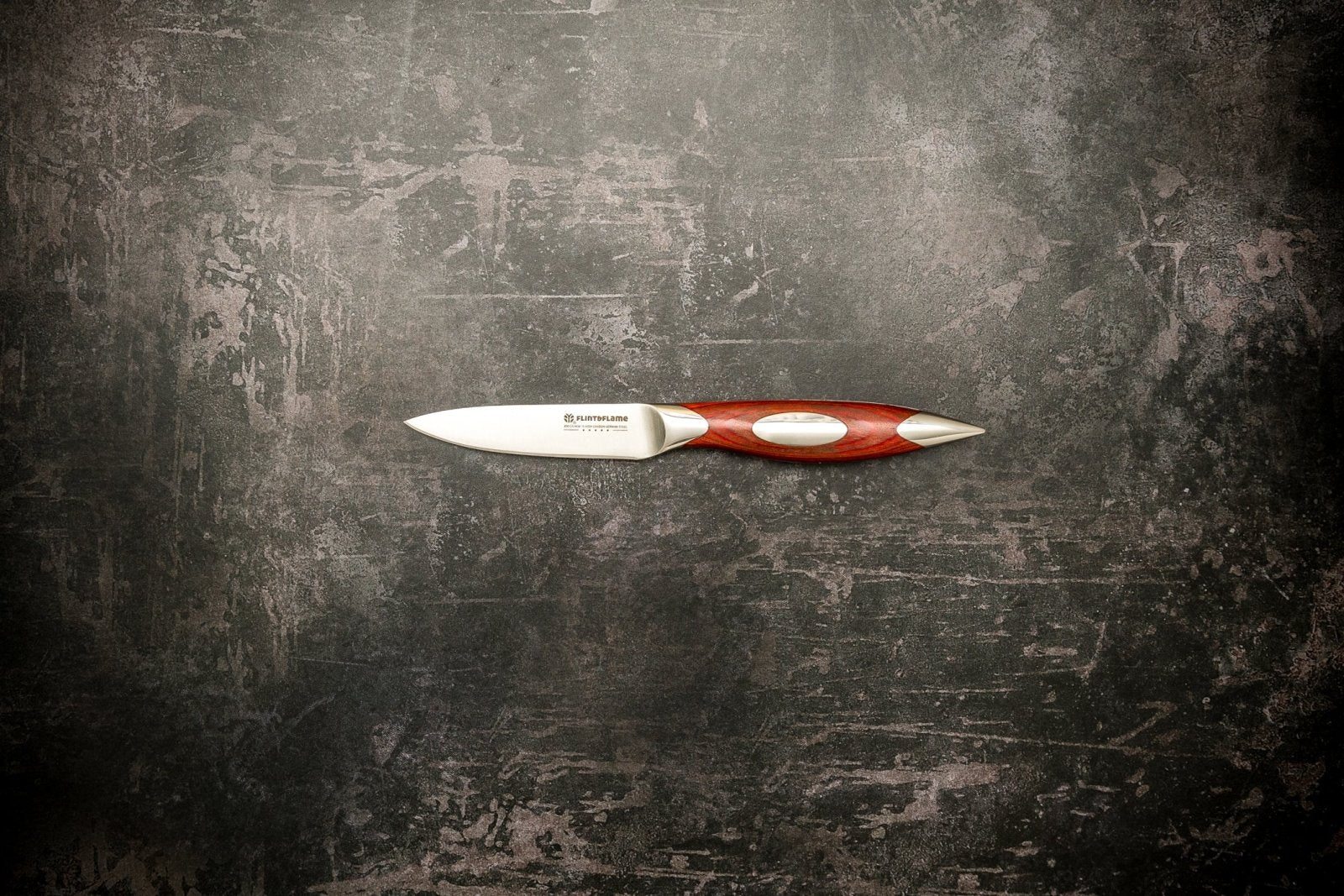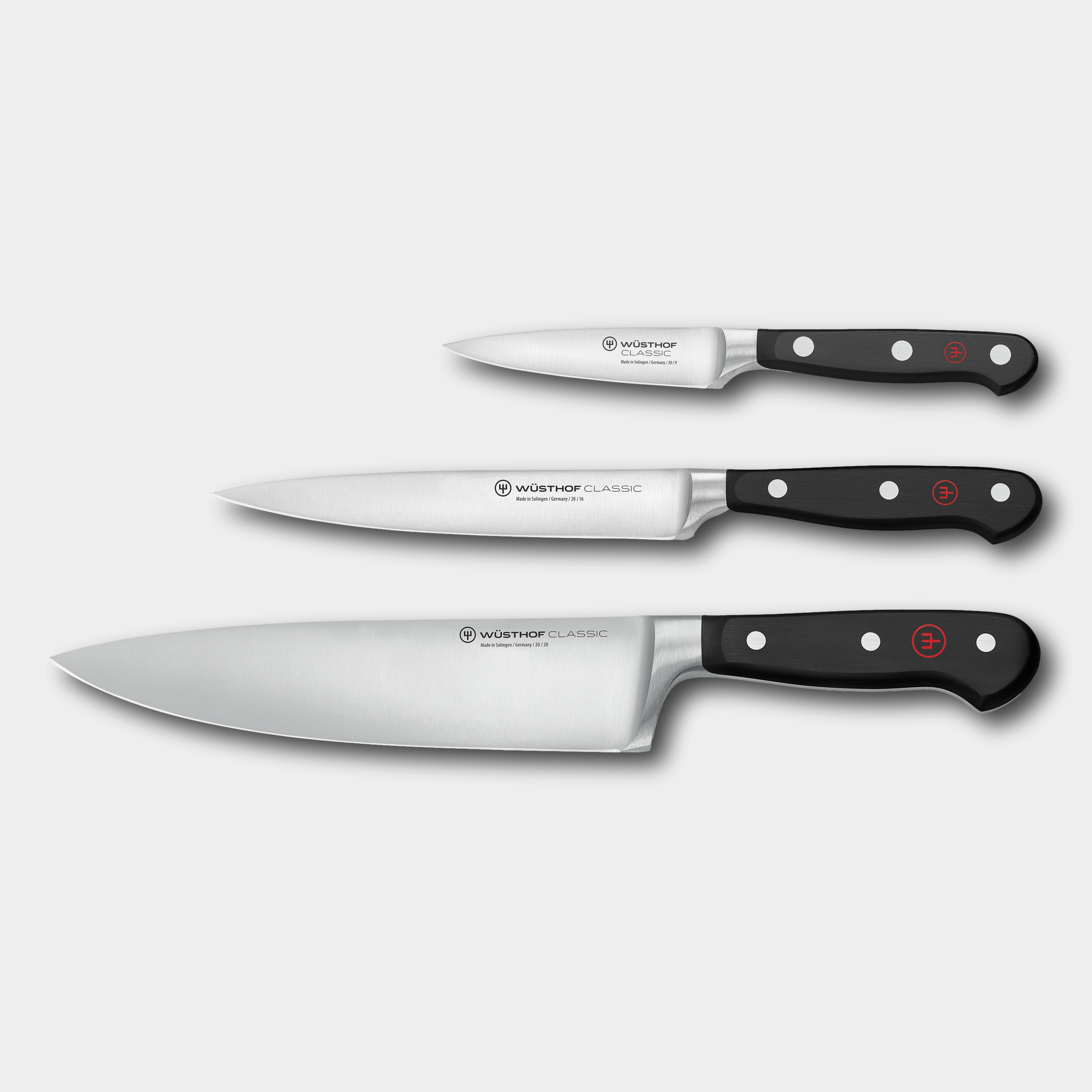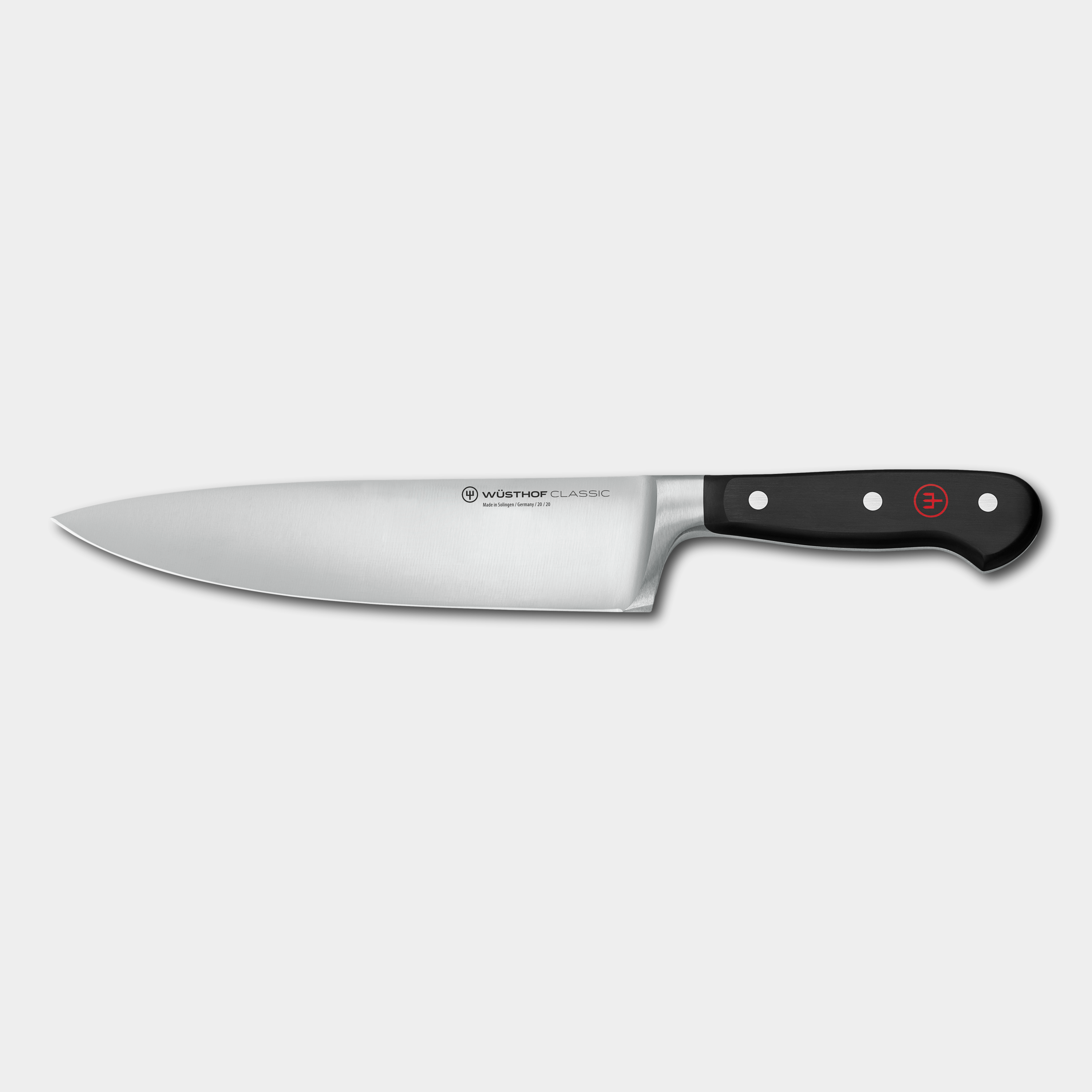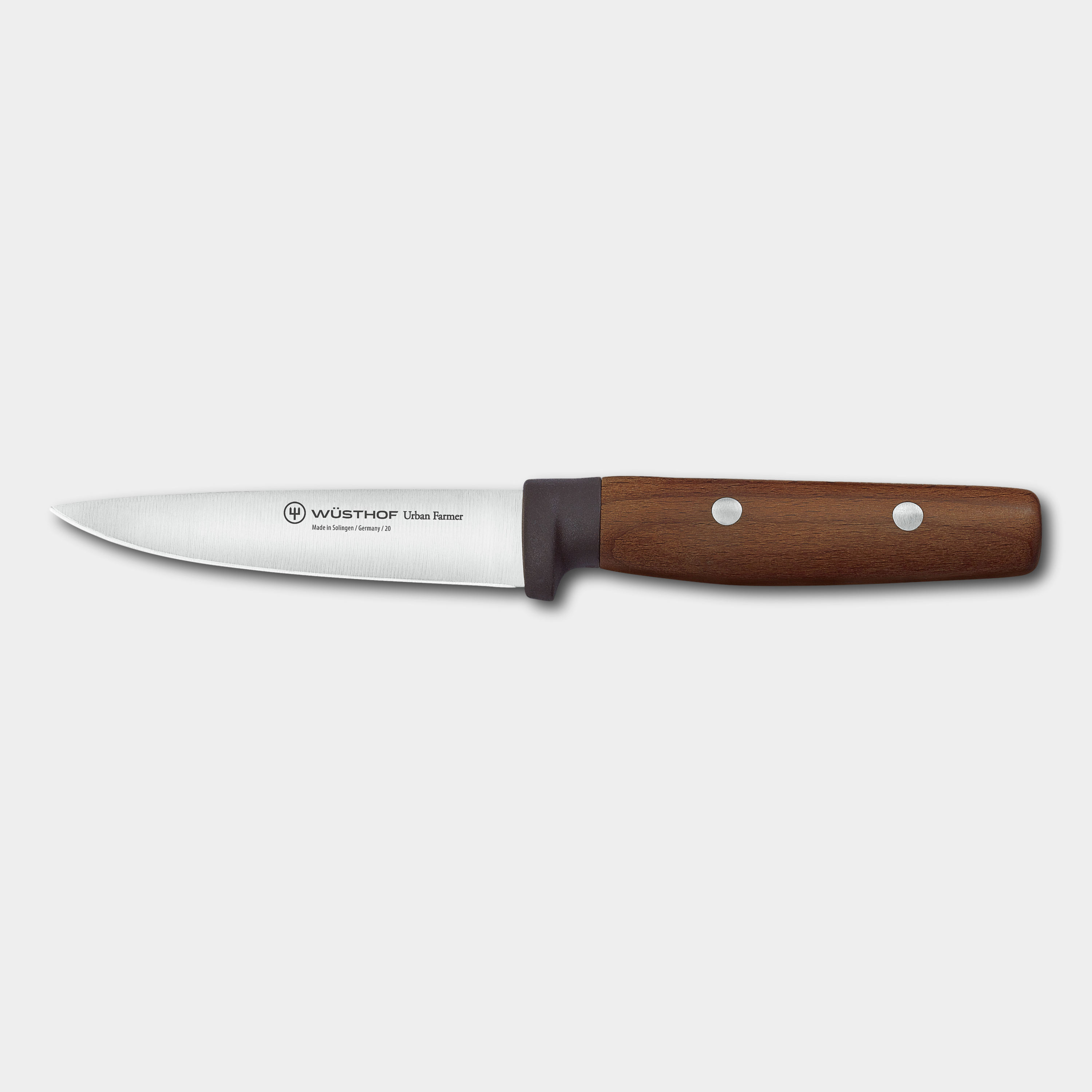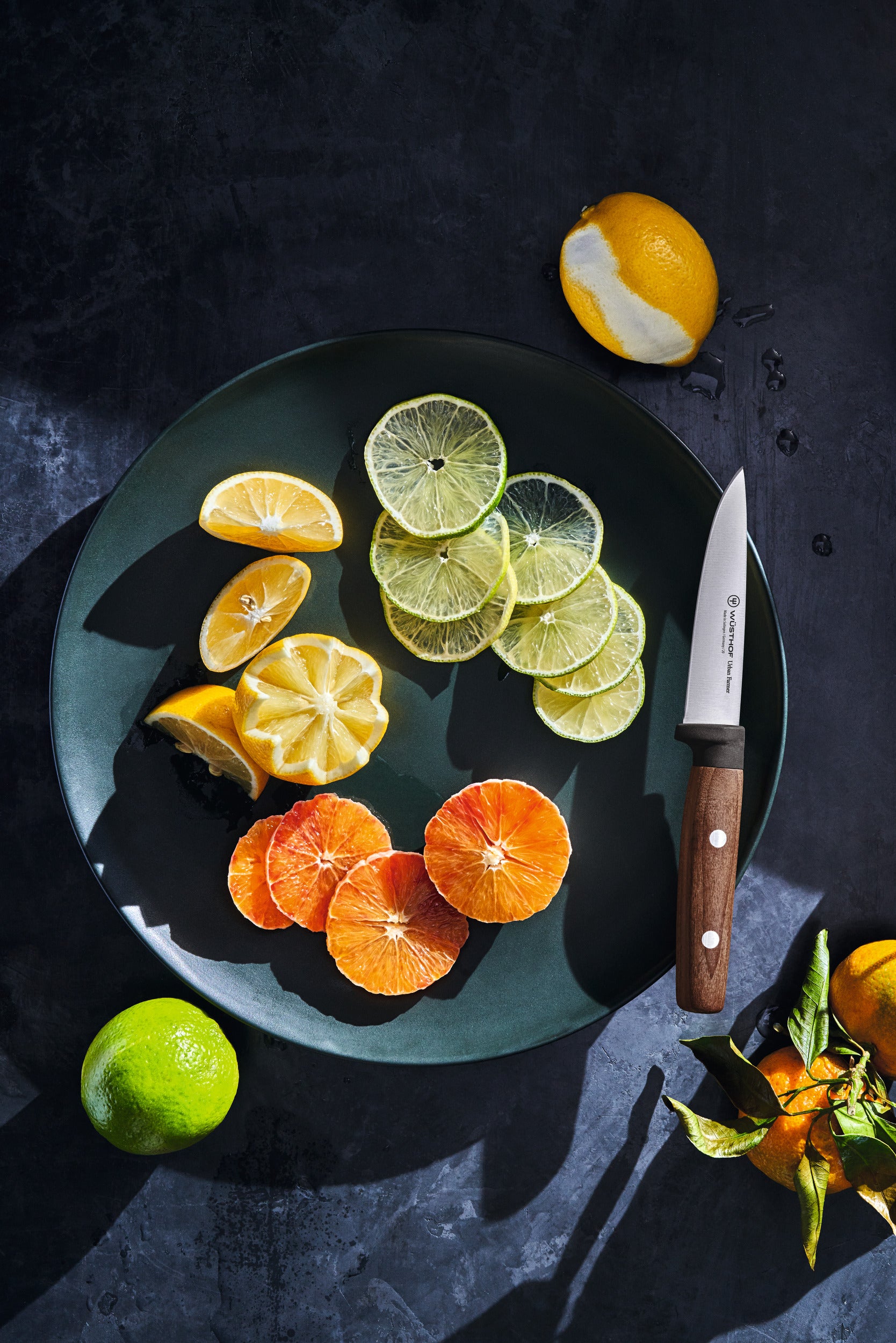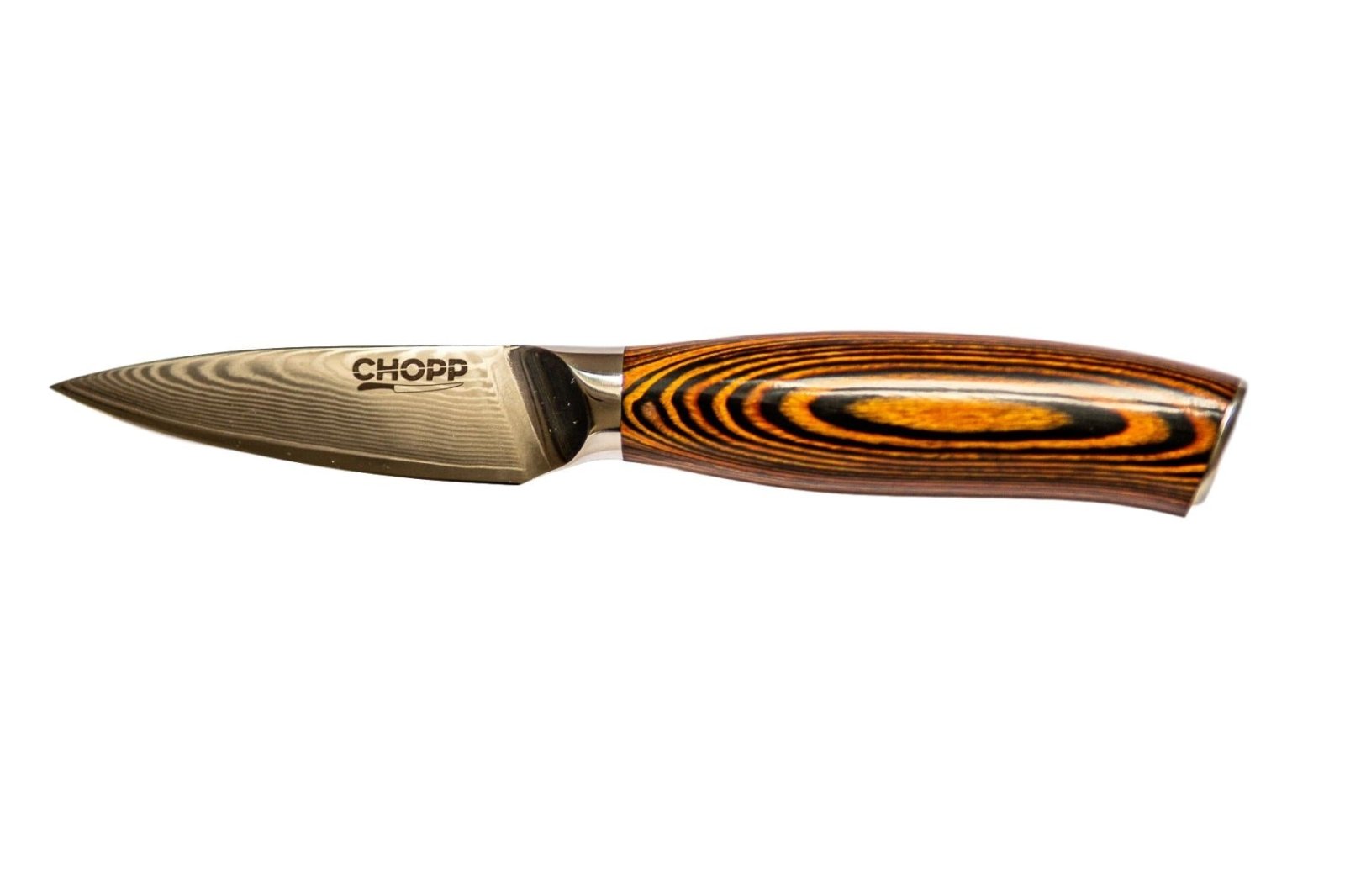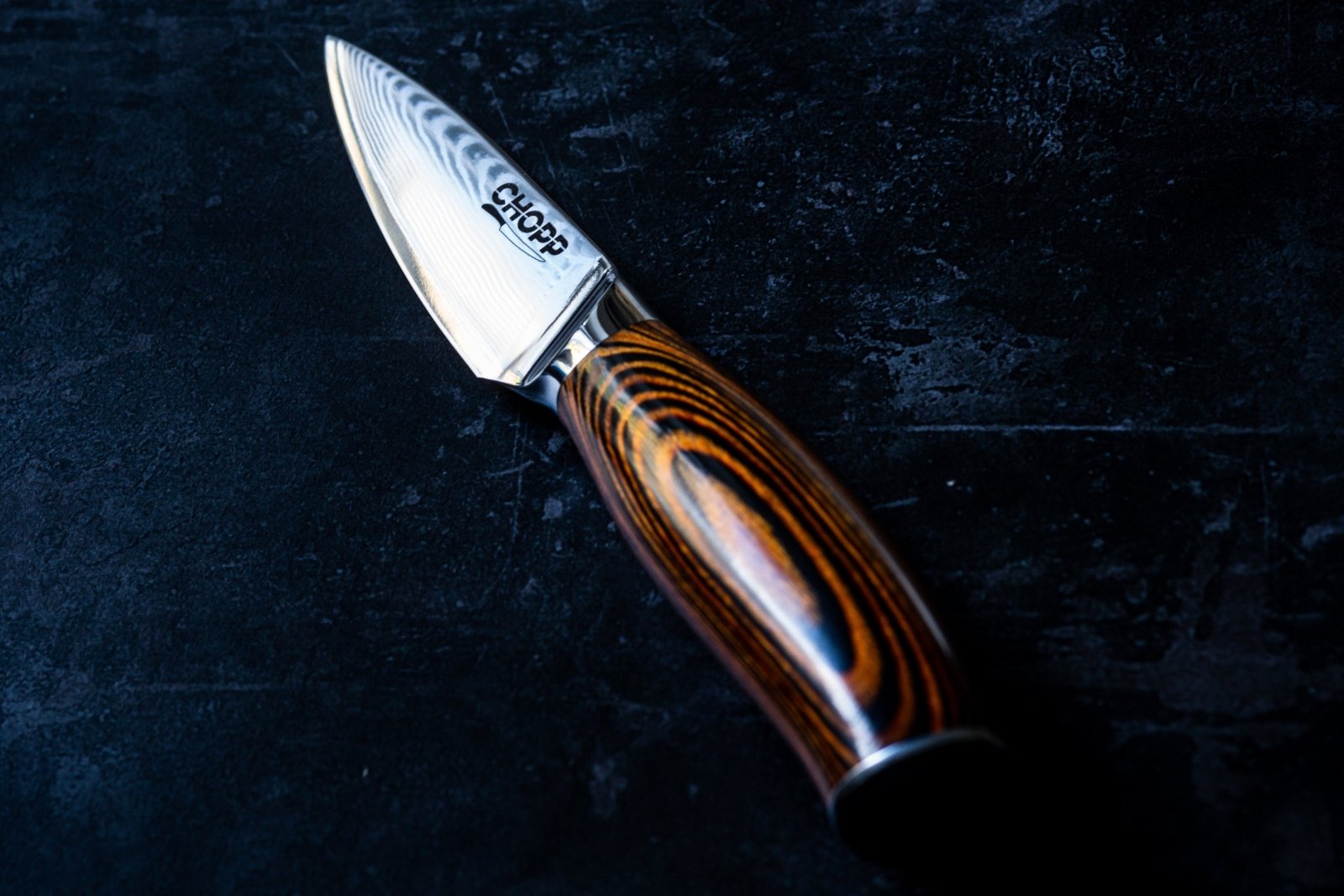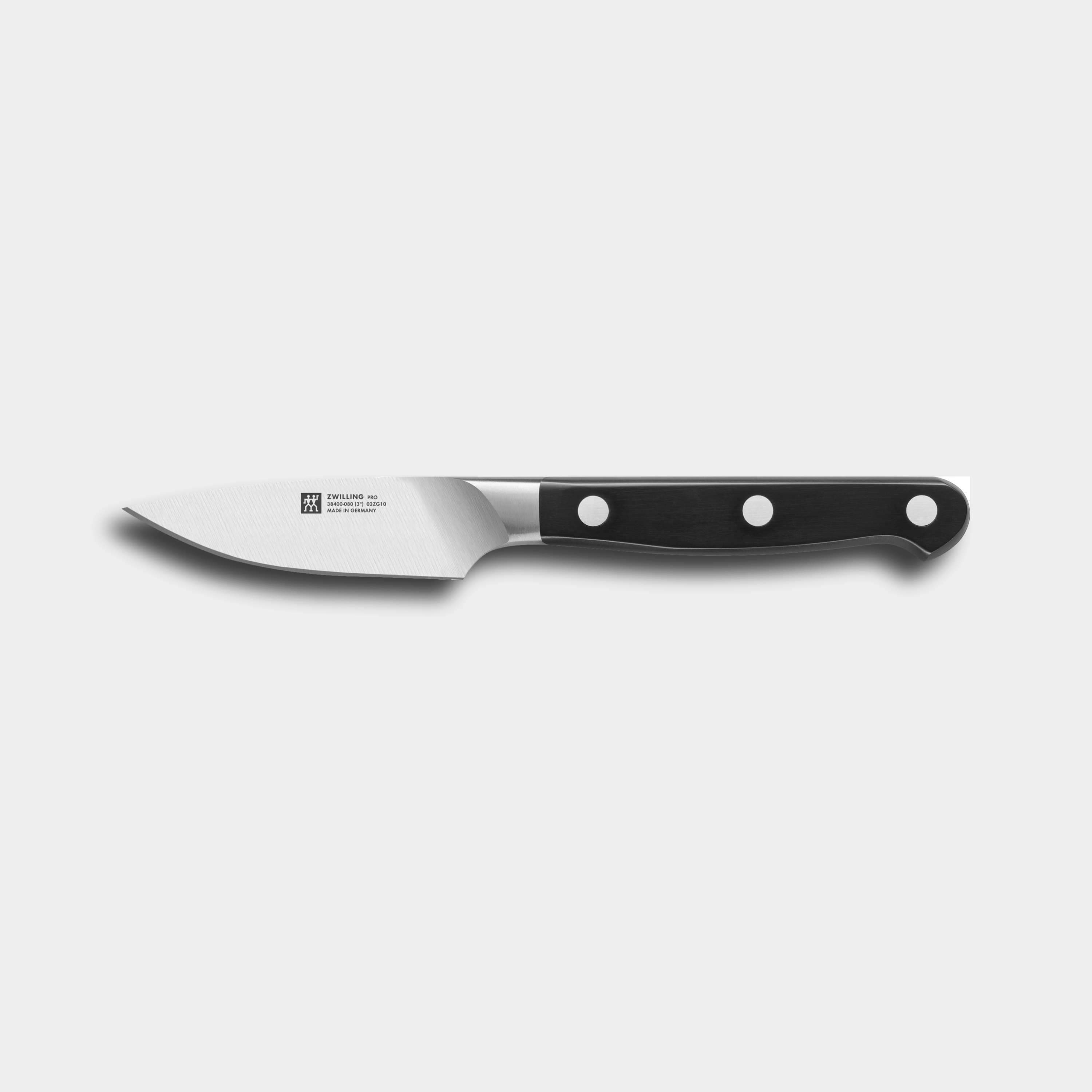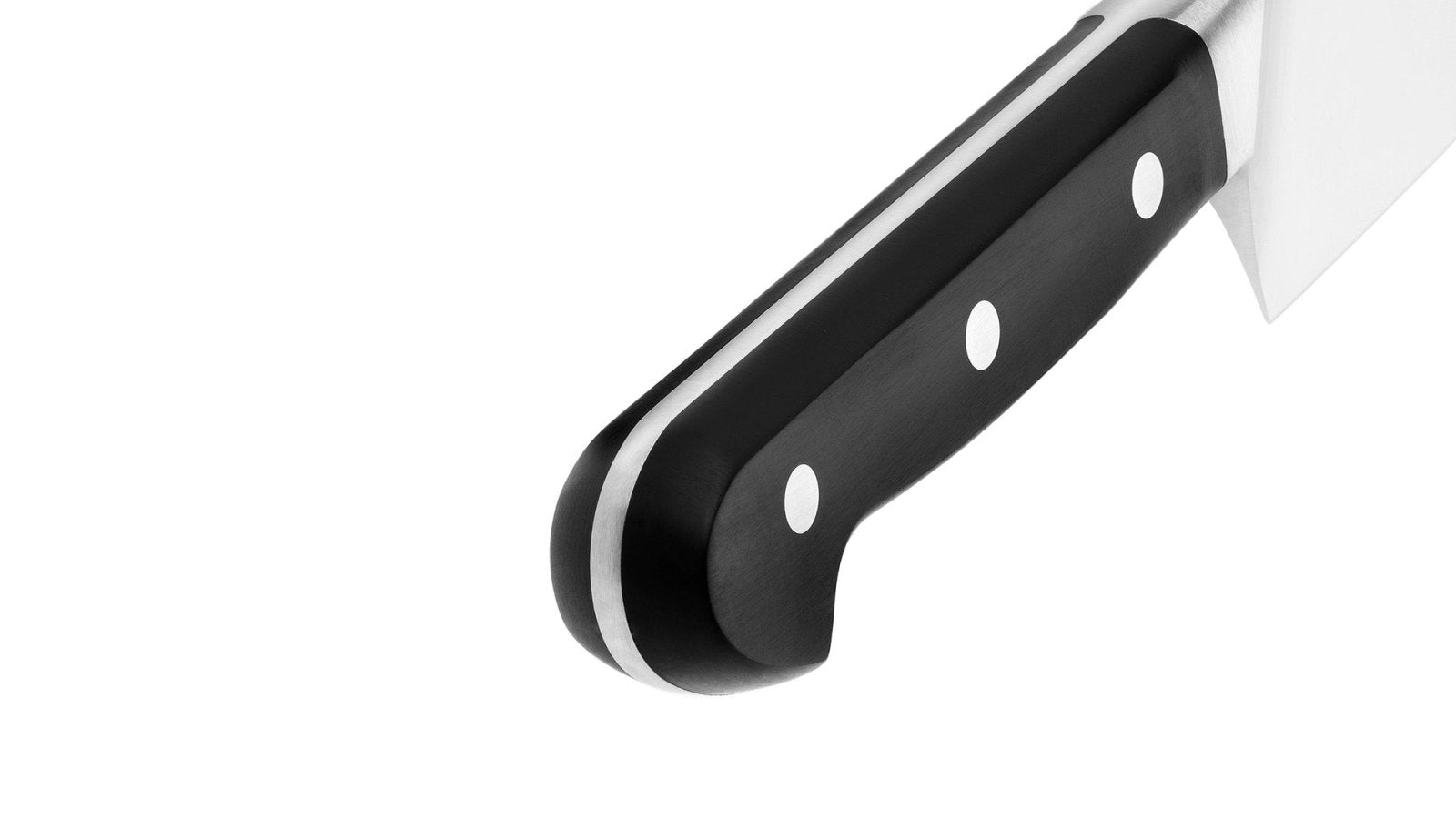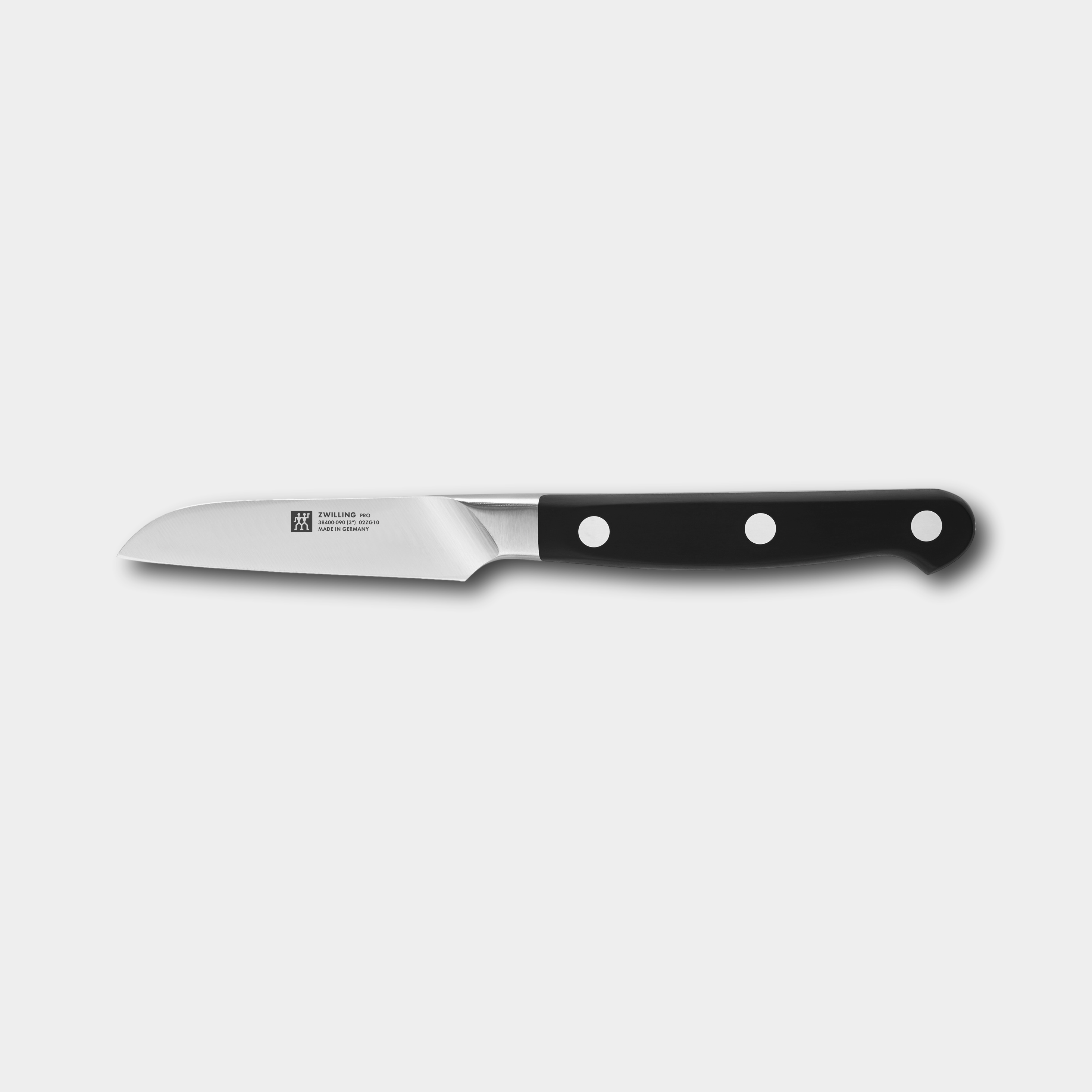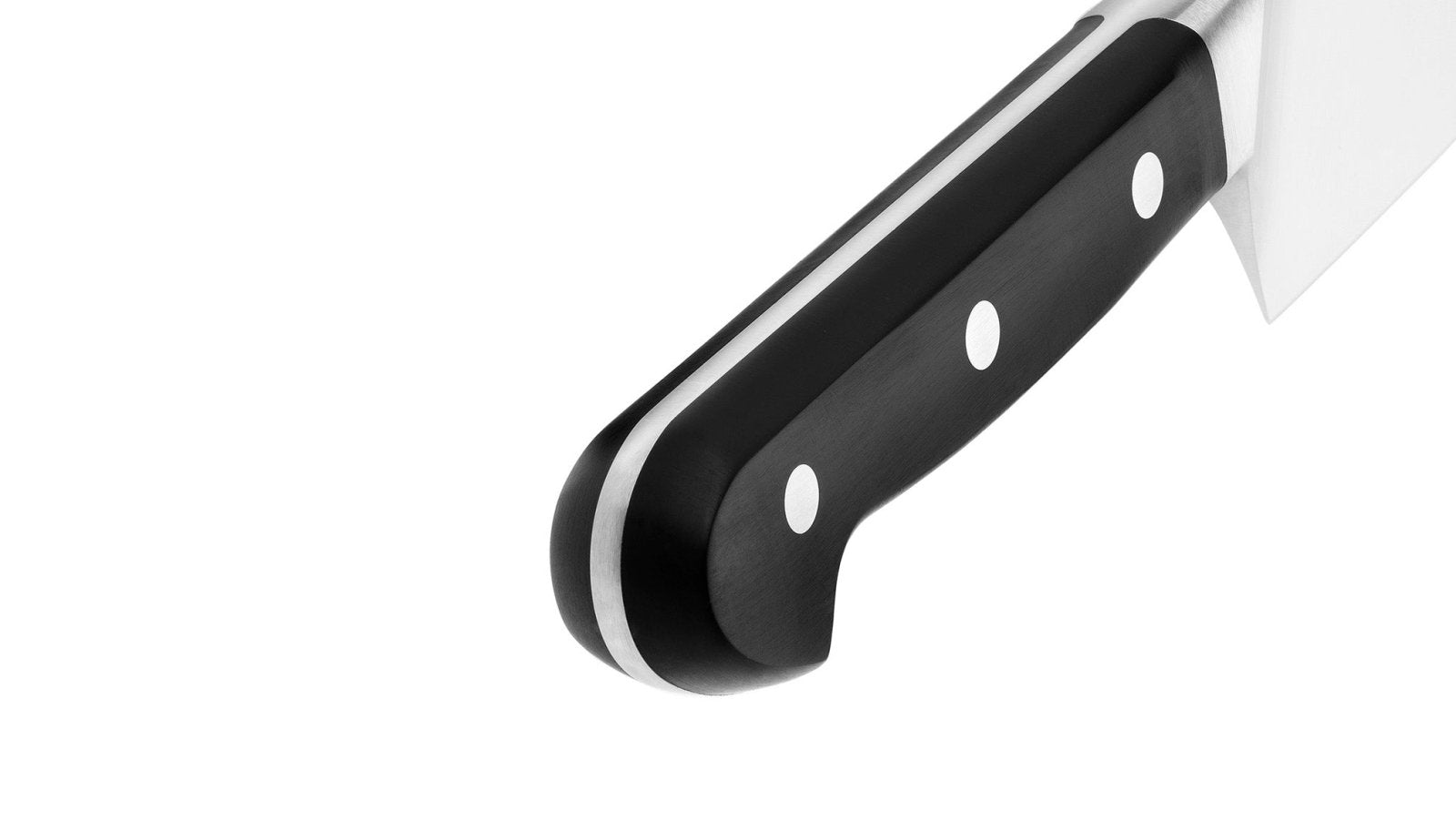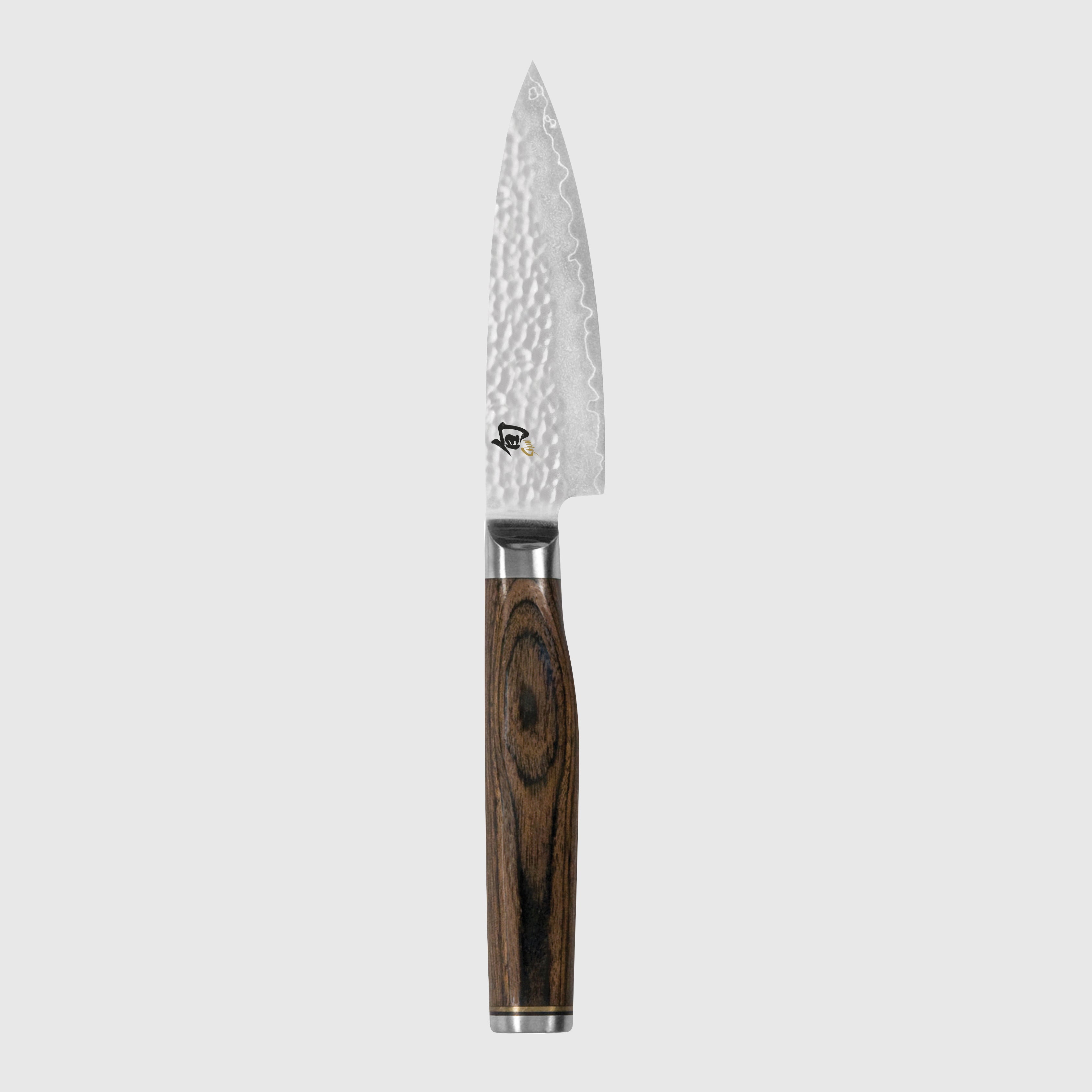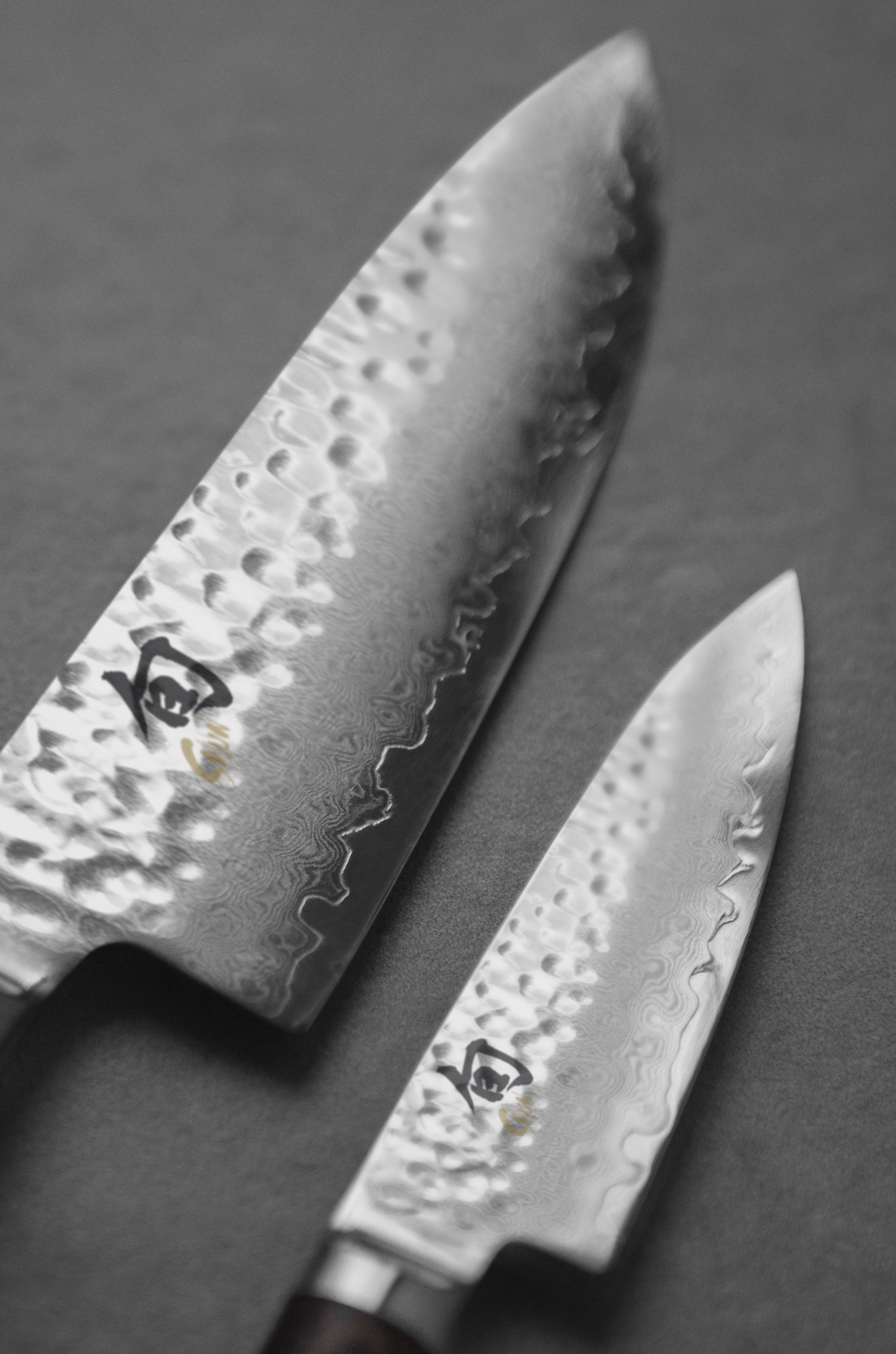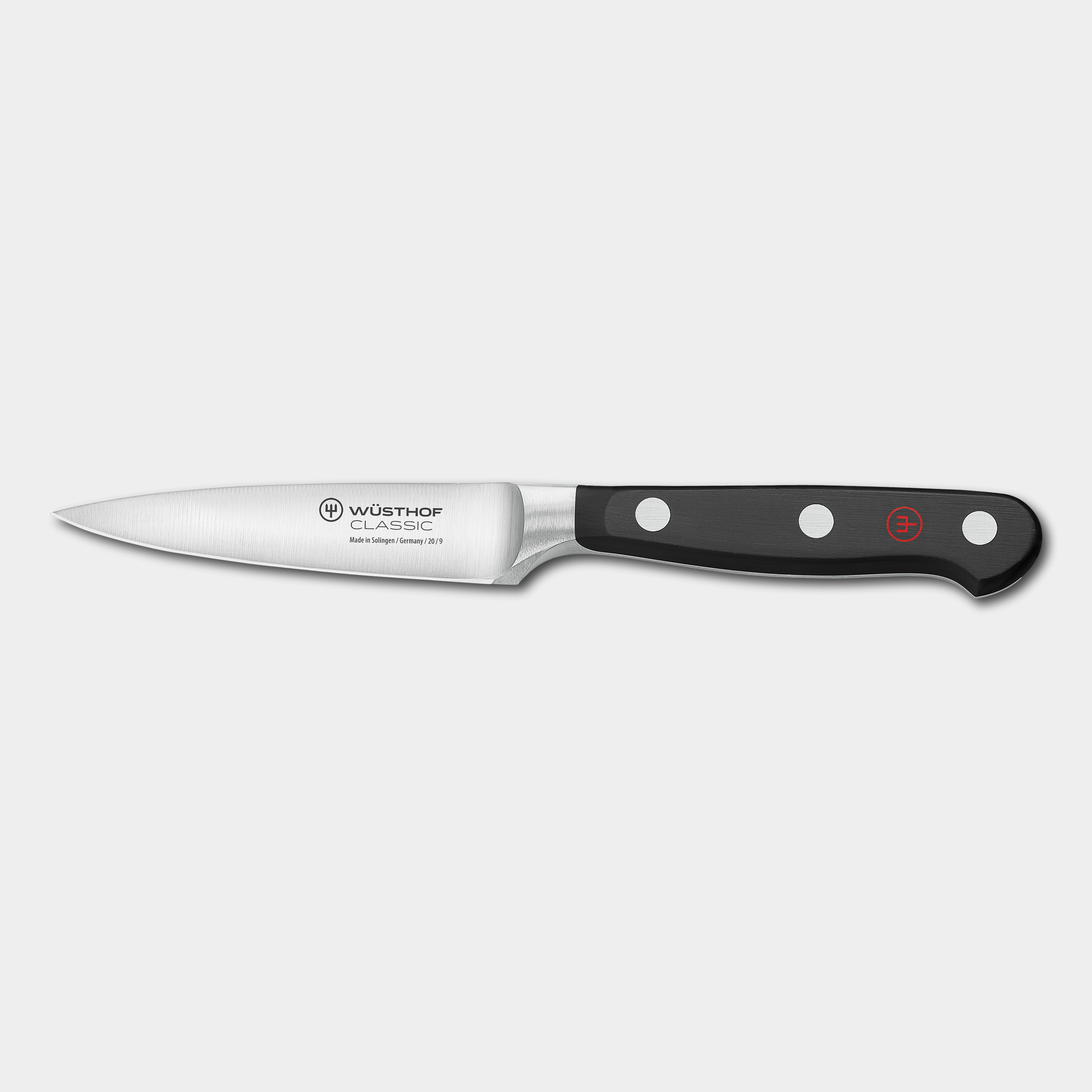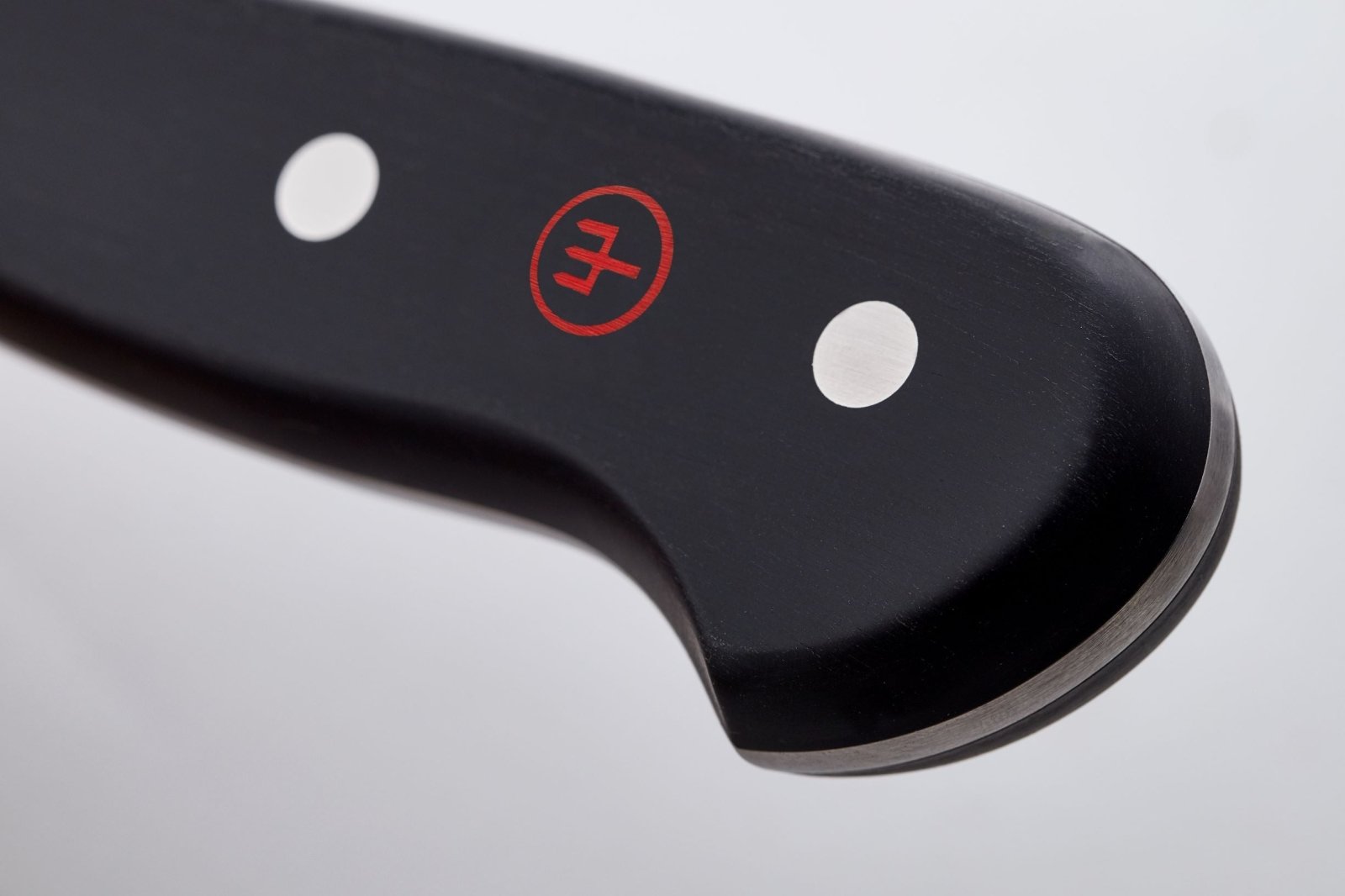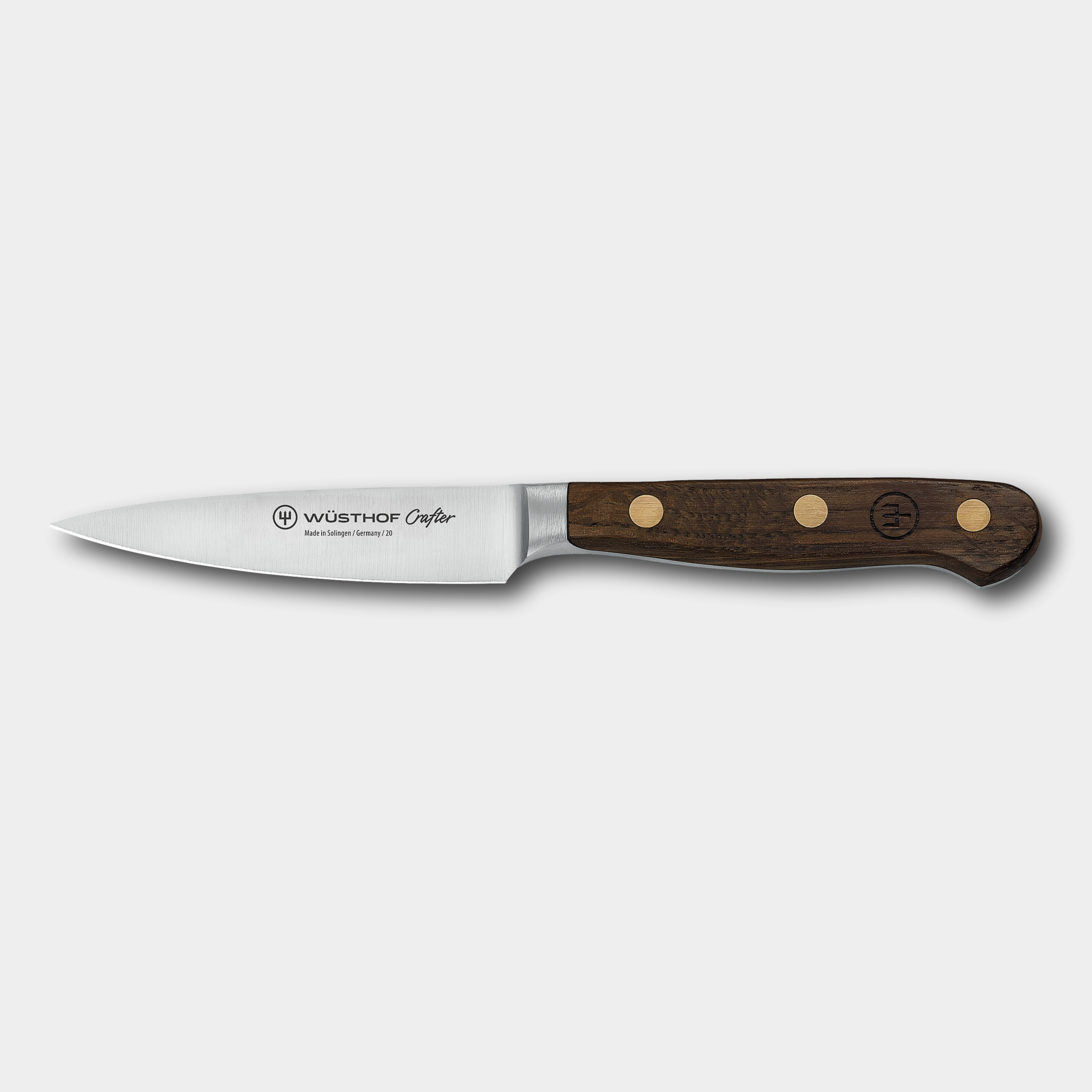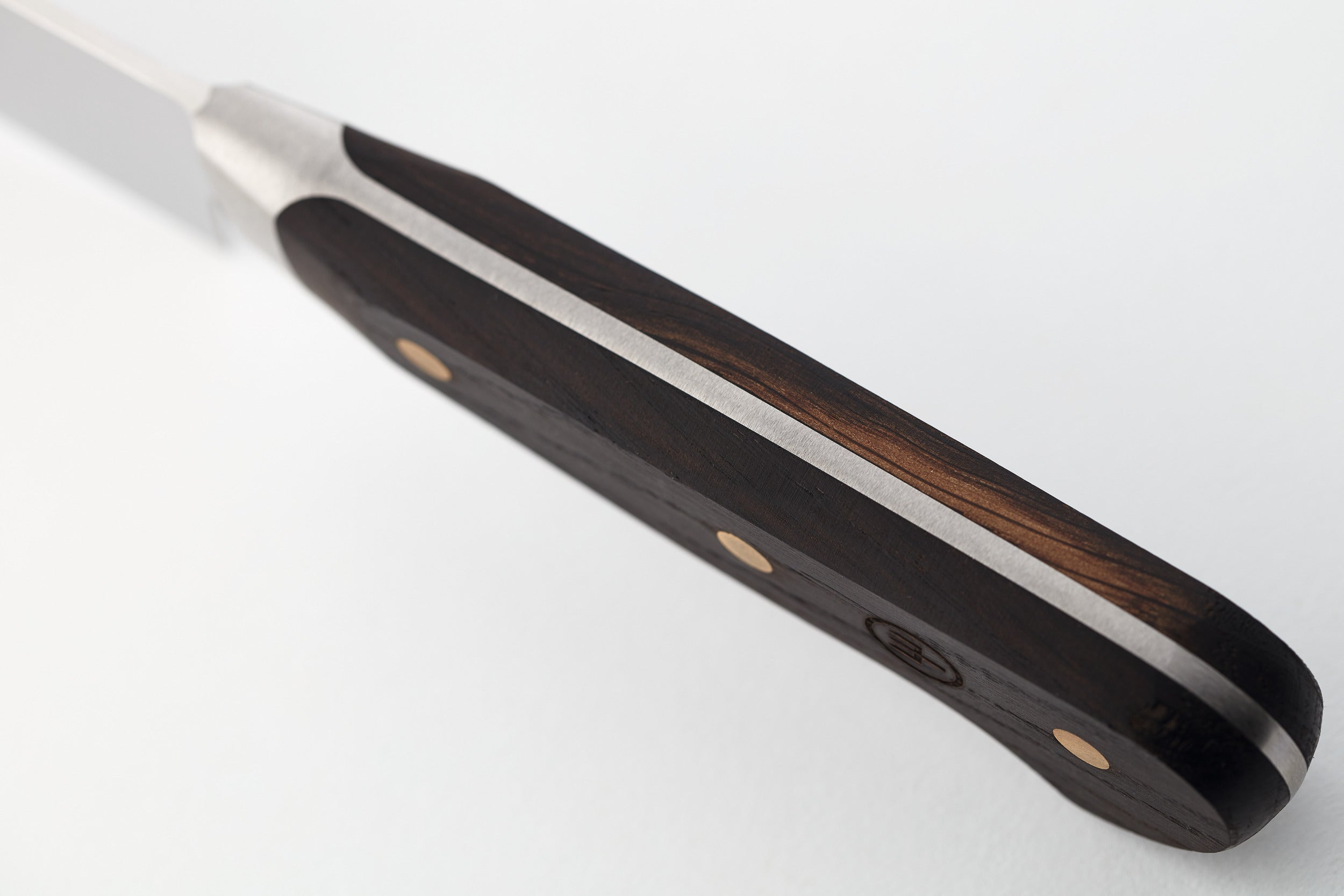
Vegetable & Paring Knives
The perfect addition to any kitchen
At The Cotswold Knife Company, we offer an extensive selection of vegetable and paring knives from the world’s most renowned brands, including Robert Welch, Wüsthof, Zwilling, Kai, and more. Vegetable and paring knives are essential tools in any kitchen, specifically designed to be used on vegetables and fruits. You can trust the vegetable and paring knives we have chosen to stock to get the job done.
Vegetable knives are the best knives to use when it comes to cutting and slicing vegetables. They typically have a broader blade, which makes them perfect for swiftly chopping and slicing different kinds of vegetables. They are designed for handling larger produce with ease, making meal prep quick and efficient. Paring knives, on the other hand, feature a shorter, pointed blade making them perfectly suited for more delicate tasks such as peeling, trimming, and performing intricate cuts. Investing in both types of knives ensures you have the right tools for a range of kitchen tasks, which would take your culinary endeavours to the next level.
- Renowned Brands:Featuring top names like Robert Welch, Wüsthof, Zwilling, Kai, and more.
- Express Delivery: If ordered before 2 pm we will dispatch it the same working day. Express delivery is available at the checkout.
- UK Support Talk to us, not a robot, we can advise and process your order over the phone
FAQs
As it makes cutting vegetables a breeze! They are specifically designed with the thought of slicing vegetables in mind. The clue is in the name!
1. Optimised Blade Shape for Slicing:
The vegetable knife typically features a straight-edged, slightly curved, or sheepsfoot blade that makes it ideal for slicing vegetables. This design allows for smooth, precise cuts with minimal resistance, making it easy to chop through both hard and soft vegetables efficiently. The flat edge is perfect for creating clean, even cuts, which is essential for consistent cooking and presentation.
2. Perfect for Dicing and Chopping:
A vegetable knife is particularly well-suited for dicing and chopping vegetables. Its blade is often shorter and more manageable than a chef’s knife, allowing for more control and speed when cutting vegetables into uniform pieces. This makes it easier to quickly prepare ingredients for salads, soups, stir-fries, and other dishes that require finely chopped vegetables.
3. Ideal for Decorative Cuts:
For cooks interested in food presentation, a vegetable knife provides the control needed to make decorative cuts and garnishes. Its design allows for careful, controlled movements, which is essential when carving intricate patterns or shapes out of vegetables for aesthetic purposes.
4. Reduced Fatigue:
Vegetable knives are typically lightweight and well-balanced, which helps reduce hand and wrist fatigue when preparing large quantities of vegetables. This is particularly useful in professional kitchens or for home cooks who spend a lot of time chopping and slicing vegetables.
5. Versatility Beyond Vegetables:
While specifically designed for vegetables, the knife’s versatility allows it to be used for other tasks in the kitchen, such as slicing fruits or finely mincing herbs. Its ability to handle a range of cutting tasks makes it a valuable, multi-functional tool in any kitchen setup.
A paring knife is a small, versatile knife commonly used in the kitchen for intricate tasks that require precision and control. Here are some of the primary uses of a paring knife:
- Peeling: It's ideal for peeling fruits and vegetables, such as apples, potatoes, or carrots, due to its small size and sharp blade, which allows for easy maneuvering.
- Trimming: It is great for trimming and removing seeds from fruits and vegetables, such as deseeding bell peppers or removing the core from strawberries.
- Slicing and Dicing: A paring knife is perfect for small, precise slicing and dicing tasks, such as cutting garlic, shallots, or herbs into fine pieces.
- Detailed Work: It’s used for delicate tasks like creating garnishes, scoring designs on pastries, or segmenting citrus fruits.
- De-veining and Cleaning: It can be used to devein shrimp, remove the eyes from potatoes, or clean other small produce items.
Yes, a paring knife can be used for fruit. Its small size and pointed tip make it perfect for handling detailed tasks that require precision. This makes it ideal for peeling, trimming, and cutting fruit with accuracy. The lightweight nature of a paring knife allows for better control, enabling you to perform delicate tasks like removing seeds, coring, or creating intricate designs. Because of its versatility and ease of use, a paring knife is a great tool for preparing fruit in various ways.
In an ideal world, having both a paring knife and a utility knife ensures you’re prepared for all kinds of kitchen tasks. Each knife excels in different areas, and their combined versatility will streamline your prep work.
Utility Knife Benefits
A utility knife typically features a blade length of around 4 to 7 inches. Its slightly longer blade can handle a broad range of everyday tasks, like slicing small-to-medium produce or trimming meat when you don’t need the size of a chef’s knife. Because it fills that “in-between” role, a utility knife is often the go-to blade for cooks who want one knife that can do a bit of everything.
Paring Knife Benefits
Paring knives generally range from about 2.5 to 4 inches in blade length. This shorter, maneuverable blade is perfect for delicate tasks that require precision and control—such as peeling fruit, coring strawberries, removing seeds from peppers, or making small incisions for garnishes. If you tend to do detailed prep work, a paring knife really shines.
Which One to Choose
If intricate peeling, coring, or trimming are frequent tasks in your kitchen, opt for a paring knife. If you often want a single, versatile blade for most small-to-medium cutting jobs, a utility knife could be the better choice. Ultimately, owning both covers the widest range of kitchen tasks with ease.
Maintaining your knives involves several essential practices to ensure they stay sharp, durable, and in top condition:
- Cleaning: Always wash your knives by hand with warm water and mild detergent immediately after use. It's important to avoid using the dishwasher, as the harsh environment can damage both the blade and the handle over time. After washing, dry the knives completely with a soft cloth to prevent any rust formation.
- Honing: Regular honing is key to keeping your knives sharp and maintaining their edge. Use a honing steel before or after each use to realign the blade's edge. Hold the steel vertically and gently slide the knife down and across the steel at a 20-degree angle.
- Sharpening: In addition to regular honing, your knives will need periodic sharpening, typically once or twice a year depending on how frequently you use them. You can sharpen your knives using a whetstone, a handheld sharpener, or opt for professional sharpening services.
- Storage: Proper storage is crucial for the longevity of your knives. Store your knives in a knife block, on a magnetic strip, or within protective sheaths. This not only prevents the blades from dulling but also helps avoid accidents. Storing knives in a drawer is not recommended, as they can easily get damaged.
- Cutting Surface: To maintain the sharpness of your knife edges, always use wooden or plastic cutting boards. Cutting on hard surfaces like glass, metal, or stone can quickly dull your knives.
- Avoid Misuse: Remember that these knives are specifically designed for cutting food. Avoid using them for any non-food related tasks, as this can damage the blade.
- Handle with Care: Always be mindful of the knife's balance and handle it with care. Avoid dropping or carelessly tossing your knives, as this can lead to damage to both the blade and the handle.
Shop at Cotswold Knife Company with confidence, knowing we are a verified stockist of all the knives we stock.
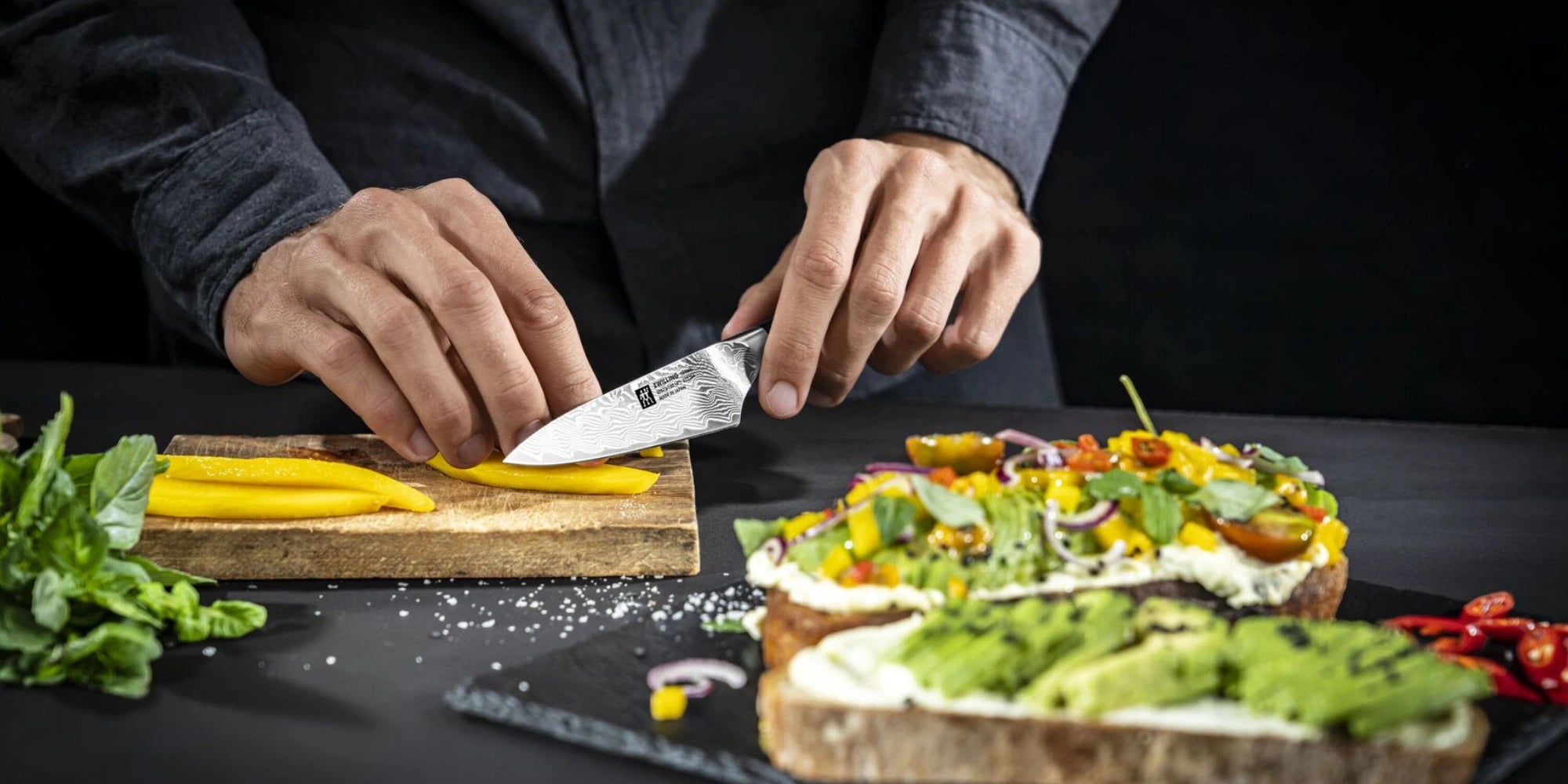
Our Full Guide to the Paring Knife
The Cotswold Knife Co
Whether you’re peeling fruit, trimming vegetables, or tackling those small, precise cuts, this guide has you covered. Discover what makes a paring knife essential in the kitchen, get tips on choosing the right one for your style of cooking, and learn practical techniques to handle delicate tasks with confidence.

